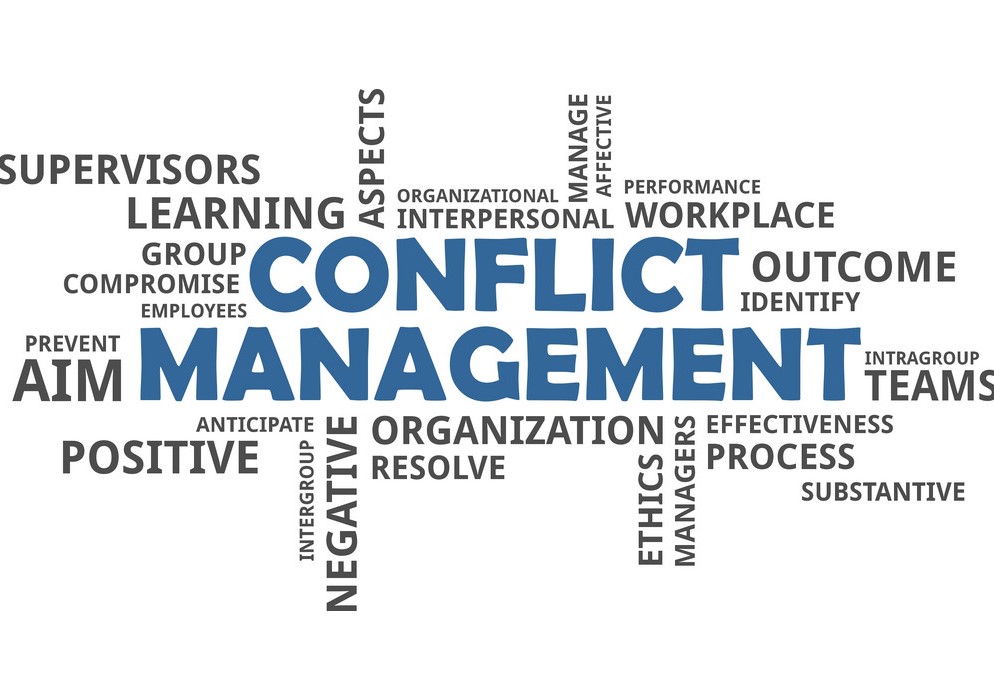Course Details
Your Growth, Our Mission

Course Description
The Training Course Will Highlight ?
Are you involved in daily conflicts with co-workers? Is your work environment becoming increasingly unpleasant? Is this impacting your performance? If the atmosphere at work is tense, this can lead to team demotivation and poor morale. Tense situations and minor daily conflicts can escalate if they are not dealt with. To turn this kind of situation around, you must learn to express yourself assertively and set limits without adopting passive or aggressive behavior. Improve your understanding of your supervisors’ and co-workers’ motivation and actions and apply straightforward methods for dealing with and resolving conflict.
Training Objective
Are you involved in daily conflicts with co-workers? Is your work environment becoming increasingly unpleasant? Is this impacting your performance? If the atmosphere at work is tense, this can lead to team demotivation and poor morale. Tense situations and minor daily conflicts can escalate if they are not dealt with. To turn this kind of situation around, you must learn to express yourself assertively and set limits without adopting passive or aggressive behavior. Improve your understanding of your supervisors’ and co-workers’ motivation and actions and apply straightforward methods for dealing with and resolving conflict.
Target Audience
Executives, Managers, Supervisors, Team Leaders, Superintendents, Financial Officers and Controllers, Process Managers, Strategic Planning Managers, Key Personnel, Champions, Officers, Engineers, Administrative Staff, anyone who deal with conflict situations
Training Methods
This interactive Training will be highly interactive, with opportunities to advance your opinions and ideas and will include;
- Lectures
- Workshop & Work Presentation
- Case Studies and Practical Exercise
- Videos and General Discussions
Daily Agenda
An Introduction to Conflict Management Definitions
- What is conflict?
- Why does conflict happen?:
- Conflict management strategies
- Managing anger and emotions
- Responding to anger
- Conflict communication skills
- Interpersonal skills and resolving conflict
Developing Conflict Awareness
- Distinguish between a disagreement and a conflict
- Identify the signs of a conflict
- Manage your emotional reaction in a conflict situation
Modes of Managing Conflict
- Choose the appropriate conflict management approach for any situation
- Understand your own conflict style
- Follow the A.E.I.O.U. method to defuse a tense situation
Responding to Conflict
- Communicate assertively without eliciting defensiveness from the other person
- Constructively disagree with others
Handling Difficult Conversations
- Select appropriate language to express your ideas clearly
- Plan for difficult conversations in a way that focuses on achieving the results you desire
- Prepare for potential barriers during difficult conversations
- Effectively execute a difficult conversation
- Set goals for applying your new skills to your own real-life situations
Analyzing the Situation
- Identifying the characteristics of the situation
- Recognizing the role of perception
- Describing the behavior adopted in the situation
- Defining the psychological mechanisms the conflict brings out
- Developing awareness and self-control
Grasping Negotiating Techniques
- Outlining the drawbacks of haggling or bargaining
- Establishing a win-win negotiation
- Maintaining good relationships
Applying Techniques for Resolving Conflicts
- Refocusing negative behavior
- Settling tensions successfully
Developing Conflict Awareness
- Recognizing the difference between disagreement and conflict
- Understanding the five levels of a conflict
- Exploring barriers to conflict management and resolution
Responding to Conflict
- Identifying your own feelings and actions in response to conflict
- Applying the P-U-R-R Model to demonstrate understanding
- Utilizing the validating process
- Distinguishing between listening for thoughts and listening for feelings
The Role of Trust in Minimizing Conflict
- Describing the 4 Cs as the cornerstones of building trust
- Knowing how trust is lost and regained, and how transparency validates trust
- Identifying interests behind positions
Conflict Strategies
- Identifying your preferred strategies for responding to conflict
- Understanding the five conflict strategies
- Exploring appropriate strategies to minimize/manage conflict
Dealing with Difficult Behavior
- Explaining the difference between difficult people and difficult behavior
- Understanding how to handle passive behavior
- Developing a strategy for handling passive or aggressive behavior
Mapping the Conflict
- Mapping a conflict using a 5-step approach
- Exploring a given conflict from various "viewing points"
- Separating interests from positions in a specific conflict
- Selecting a conflict strategy appropriate to addressing a specific goal
- Implementing a chosen conflict strategy
Accreditation
BTS attendance certificate will be issued to all attendees completing minimum of 75% of the total course duration.
Quick Enquiry
Request Info
Related Courses
Your Growth, Our Mission

